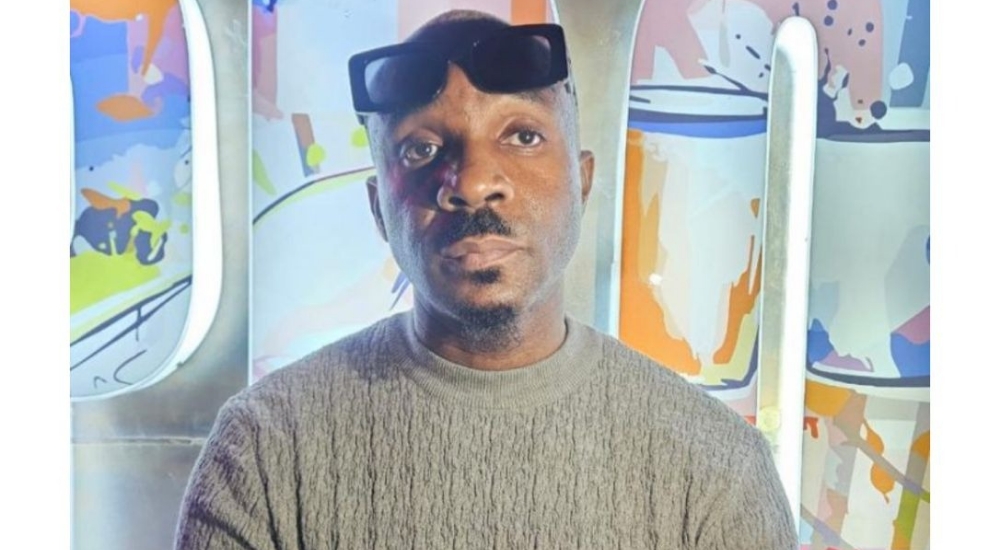Pretty Mike Advertised Drug Party Before Raid On Night Club, Says NDLEA
Since the arrest of over 100 people at Proxy Night Club in Victoria Island, Lagos State, questions are being raised regarding the arrest of the club owner, Mike Eze Nwalie, popularly called Pretty Mike, by the National Drug Law Enforcement Agency (NDLEA).
The Sunday raid, at about 3 am at the club, led to the recovery of cartons of Canadian loud, a strain of cannabis and nitrous oxide also known as laughing gas from the club attendees and the club’s store.
While the recovery of the illegal substances might seem like the main concern, initial public reaction, as monitored by THE WHISTLER, appeared to focus more on the legality of Nwalie’s arrest and whether merely attending a nightclub in Nigeria constitutes a crime.
In an interview with THE WHISTLER, the spokesperson of the NDLEA, Femi Babafemi, however, clarified that Nwalie had advertised a drug party in the club, and this led the agency to embed its officers in the club at 11 pm on Saturday, before the raid.
“First, there’s an advertised drug party in the club. Two, after intelligence about the drug party, our subsequent surveillance confirmed drugs were being sold in the club,” Babafemi told THE WHISTLER.
Nwalie wasn’t the only socialite arrested.
Advertisement
A past Big Brother Naija participant, Toyo Ideh, also disclosed on his Instagram page that he had been arrested.
“I have been arrested by the NDLEA from a nightclub in Lagos for basically not doing anything at all since around 4 am. They made us sit down like criminals.
“We are over 150 people here up till now, who were carried to the NDLEA headquarters Ikoyi.
“We didn’t commit any crime, they came with guns inside the club and told everyone to lie…,” Ideh wrote on Sunday, but had subsequently confirmed his release.
However, Babafemi defended the mass arrest, emphasising that it was executed within the Standard Operating Procedures (SOPs) of the agency.
Advertisement
“The event was a drug party hence everyone there was a suspect at the time of operation while subsequent screening will separate users from dealers.
“The Chairman/CEO had already directed that users be placed on counselling/treatment and released while dealers and organisers will face the law.
“The raid is no doubt a strong statement that any club or social facility promoting the sale and use of illicit substances or used to store such will contend with the law and face the consequences,” he noted.
Is Laughing Gas An Illicit Substance?
Reactions that followed the raid have shown that many Nigerians lack awareness regarding the illegality of recreational use of nitrous oxide, otherwise known as laughing gas, in Nigeria.
Some questioned the agency on what law backed the arrest of users of nitrous oxides.
Advertisement
“Canadian Loud is a strain of cannabis which is illegal, while nitrous oxide, popularly known as laughing gas, is only allowed for medical use during surgery in hospitals,” Babafemi said.
According to the Cleveland Clinic, a nonprofit multispecialty academic medical centre, laughing gas is a type of short-acting sedative. It’s a colourless, slightly sweet-smelling gas that you breathe in through a mask or nosepiece.
“Nitrous oxide slows down your nervous system and induces a sense of calm and euphoria. It reduces anxiety and helps you stay comfortable during medical or dental procedures.
“It doesn’t fully put you to sleep, so you’ll still be able to respond to your provider’s questions or instructions,” the Cleveland Clinic said.
The substance is likely not to cause any long-term complications when given under healthcare supervision, but frequent exposure could lead to serious health risks, including neurological damage from vitamin B12 deficiency.
“People who use laughing gas recreationally have an increased risk of these long-term health conditions: depression, psychosis, tinnitus (ringing in your ears), numbness, especially in your hands and feet, weakness immune system and birth defects if used during pregnancy,” the clinic noted.
The legality of using nitrous oxide varies across different countries.
In the United Kingdom, nitrous oxide has been categorised as a Class C drug. In Australia, its sale is restricted for recreational purposes, and the same goes for the United States where its sale and use are regulated.
Generally, it remains legitimate for medical and industrial uses, such as in surgery and dentistry as an anaesthetic, and is on the World Health Organisation’s List of Essential Medicines.

